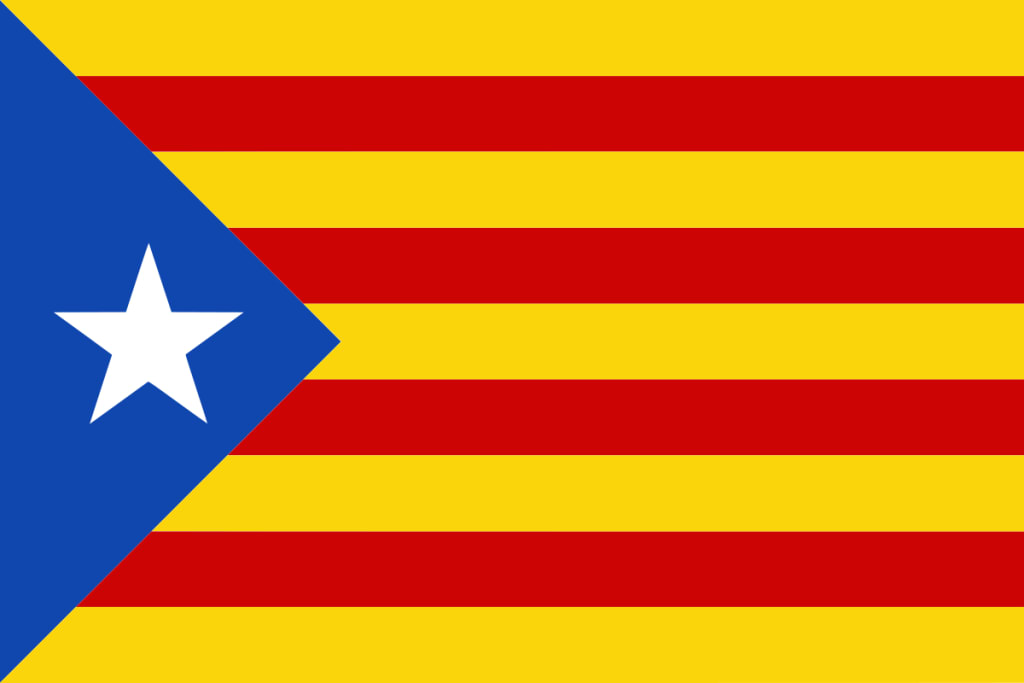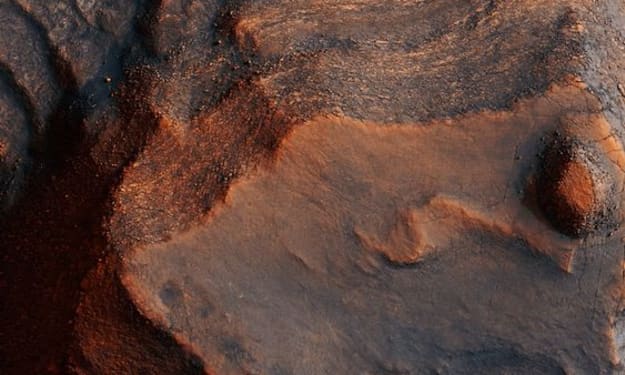How the ideas of nation represented in Salvador Espriu’s La pell de brau and the football teams of Barcelona.
Catalan Culture.

The representation of nationhood is a multifaceted concept, often depicted through various mediums that encapsulate a society's identity. In Salvador Espriu's literary masterpiece, La pell de brau, and the ardent world of Barcelona's football teams, particularly FC Barcelona, we encounter two distinct yet interconnected narratives that illuminate the complexities of national identity, particularly within the context of Catalonia. Espriu's poetic exploration delves into Catalonia's rich heritage and its struggles for autonomy, while FC Barcelona emerges as a symbolic powerhouse, embodying the aspirations and struggles of Catalans through the realm of sports. This essay aims to explore the parallels and divergences between these two realms of representation, examining how they shape and reflect the ideas of nationhood in Catalonia. Through an analysis of Espriu's evocative imagery, historical allusions, and political undertones in La pell de brau, alongside an exploration of FC Barcelona's cultural significance, and political dimensions, this essay will delve into the nuanced ways in which ideas of nation are manifested and contested in both literary and sporting arenas. By juxtaposing these two forms of expression, it will aim to uncover the rich tapestry of Catalan identity and its complex relationship with Spain, shedding light on the intersections between literature, sport, and the quest for autonomy.
FC Barcelona, often referred to as ‘Barça,’ transcends the realm of sports to become a symbol of Catalan pride and identity. As one of the most successful football clubs globally, FC Barcelona's cultural significance extends far beyond the confines of the pitch. Founded in 1899, the club has evolved into a powerhouse, not only in terms of athletic achievements but also as a stronghold of Catalanism. The club's motto, ‘Més que un club’ (More than a club), encapsulates its broader societal role, representing the aspirations and struggles of the Catalan people for autonomy and recognition. FC Barcelona serves as a unifying force, fostering a sense of collective identity among Catalans, both locally and globally. The Camp Nou, the club's iconic stadium, is a sacred space where fans congregate to celebrate their heritage, express their political convictions, and assert their distinct Catalan identity. Moreover, FC Barcelona's commitment to promoting Catalan culture and language, its emphasis on youth development, and its dedication to social causes further reinforce its status as a cultural institution deeply intertwined with the fabric of Catalan society. Thus, FC Barcelona emerges as a powerful vehicle through which Catalans assert their national identity, challenging conventional notions of nationhood and belonging within the broader Spanish context.
The theme of nationhood transcends into women's football, as evidenced by Grant Wahl's article "Premium: Barça Femení—Redefining the Sport, Redefining the Culture." The evolution of FC Barcelona Femení from amateur status to professional powerhouse serves as a poignant representation of the ideas of nation embodied by the football teams of Barcelona. With its rich history and deep ties to Catalan culture, FC Barcelona symbolises the region's distinct identity and aspirations for self-determination. The transformation of the women's team reflects Catalonia's ongoing journey towards inclusivity and gender equality, reflecting broader societal shifts in attitudes towards women's participation in traditionally male-dominated spaces. By embracing and celebrating the success of FC Barcelona Femení, the club reinforces its commitment to Catalan values of resilience, progress, and diversity. The team's achievements on the global stage, along with its efforts to engage fans and challenge traditional gender norms, contribute to a redefinition of Catalan identity that is inclusive, progressive, and representative of the region's cultural heritage. FC Barcelona Femení not only adds depth to the narrative of Catalan football but also reflects the evolving landscape of Catalan nationalism, where ideals of unity and inclusivity intersect with a commitment to cultural authenticity and social progress.
Nevertheless, matches between FC Barcelona and Real Madrid often transcend mere sporting competition and become charged with political significance. The rivalry between the two clubs mirrors the broader tensions between Catalonia and the Spanish state. FC Barcelona is often seen as representing Catalan nationalism and aspirations for independence, while Real Madrid is associated with central Spanish authority. This political dimension is palpable in the chants and displays of fans during matches, where slogans advocating for Catalan independence are commonly heard and seen. For instance, in the match on October 7, 2012, (The guardian, 2013, 0.50) between Barcelona and Real Madrid, chants of independence reverberated throughout the stadium, underscoring the deep-seated political sentiments intertwined with football in Catalonia. This dynamic illustrates how football serves as a platform for Catalans to express their political convictions and assert their distinct identity within the broader Spanish context.
While FC Barcelona's expression of Catalan nationalism through sport can be empowering for many, it also raises important questions about the nature of nationalism and its potential pitfalls. Nationalism, when taken to extremes, can lead to exclusion, division, and even conflict. In the context of FC Barcelona, the intense rivalry with Real Madrid, often fuelled by nationalist sentiments, highlights the dangers of excessive tribalism and antagonism. Moreover, the politicisation of football can sometimes overshadow the sport itself, turning matches into battlegrounds for competing ideologies rather than celebrations of athleticism and skill. Nationalism, particularly in the context of Catalonia's push for independence, is not without its challenges. It can breed resentment among minority groups within the region, as well as tensions with the central Spanish government. The quest for independence, while deeply rooted in historical grievances and cultural pride, also raises practical questions about governance and social cohesion. Furthermore, nationalism can sometimes overshadow other pressing issues facing a society, diverting attention and resources away from more urgent matters.
Salvador Espriu's La pell de brau also offers a profound journey into the essence of Catalan cultural heritage. Through imagery and historical references, Espriu plumbs the depths of Catalonia's history. The very title, ‘The Bull's Hide,’ evokes notions of strength and intrinsic identity, symbolising the enduring spirit of the Catalan populace. In the poem, the motif of the bull emerges as a potent symbol, embodying various themes and aspects of Catalan identity and history. Its presence evokes a sense of cultural pride and connection to Catalonia's rich heritage, while also serving as a reminder of the sacrifices and struggles endured by the region throughout history. Salvador Espriu employs evocative imagery throughout La pell de brau to vividly portray the essence of nationhood, particularly within the context of Catalonia. Through powerful descriptions of the bull charging and the unfolding of its hide, ‘ A bull, in a ring in Sfarad, charges at an unfolded hide’ (Espiru, 1987, page 3). Espriu captures the raw energy and passion inherent in Catalan identity. His imagery of fields, woods, and rivers further connects the reader to the natural beauty and vitality of the Catalan landscape, fostering a deep emotional resonance with the region. Through phrases like "rivers and mountains," "dry highlands and cities," and "fields and woods," (Espiru, 1987, page 64) he creates a sensory experience that immerses the reader in the essence of Catalonia's geography. The imagery of rivers and mountains suggests the rugged beauty and varied terrain of the region, while references to dry highlands and cities hint at the interplay between urbanization and the rural landscape. Additionally, the mention of being "with the wind" and "in the whispering of leaves and fountains" (Espiru, 1987, page 64) evokes a sense of harmony with nature, portraying Catalonia as a place where human life and the environment coexist in a symbiotic relationship. Through these vivid descriptions, Espriu captures the essence of Catalonia's natural and cultural heritage, inviting readers to explore and appreciate the depth of its landscapes and the richness of its traditions. The quote ‘If you run, down the night of your hatred, mad Starad, mad wild horse, whips and swords,will rein you in’ (Espiru, 1987, page 7) invokes historical allusions to convey the tumultuous past and ongoing struggles faced by Catalonia. The reference to "Sfarad" likely alludes to the historical Jewish diaspora, particularly to the Sephardic Jewish community expelled from Spain during the Spanish Inquisition. The mention of a "wild horse" suggests untamed chaos or conflict, symbolising the turmoil experienced by Catalonia throughout history. Additionally, the imagery of "whips and swords" evokes the violence and oppression inflicted upon the Catalan people during periods of political unrest and external domination. Overall, this evocative imagery serves to contextualise the contemporary struggles depicted in the poem within the broader historical narrative of Catalonia's resilience and resistance against oppression.
Notably, Salvador Espriu skillfully employs historical allusions throughout ‘La pell de brau’ to illuminate the concept of nationhood, particularly within the context of Catalonia. By referencing significant events, figures, and periods in Catalan history, Espriu embeds his work within the rich tapestry of the region's past, thereby reinforcing its cultural identity and collective memory. For example, the first page of the introduction alludes to medieval Catalonia's connections with Occitania, Italy, and Islamic Spain, highlighting the region's historical significance as a center of commerce, culture, and intellectual exchange. He also references the thirteenth-century colonisation of Valencian territory by Catalans, underscoring Catalonia's historical expansion and influence beyond its borders. Moreover, Espriu's allusions to figures like Ramon Llull and literary movements like the Renaissance underscore Catalonia's intellectual and artistic contributions to European civilisation. Through these historical references, Espriu effectively portrays Catalonia as a dynamic and resilient nation with a rich cultural heritage rooted in its past.
Salvador Espriu infuses La pell de brau with subtle yet poignant political undertones to reflect Catalonia's ongoing struggle for autonomy and self-expression. Throughout the poem, Espriu employs allegorical imagery and metaphorical language to convey themes of oppression and the quest for freedom, mirroring the political landscape of Catalonia during his time. For instance, references to silence, and cultural genocide evoke the repressive atmosphere of Francoist Spain where the Catalan language and culture faced suppression and marginalisation. Additionally, as previously mentioned Espriu utilises the motif of the bull, symbolising Catalonia's strength, resilience, and cultural heritage. The bull, charging at an unfolded hide, represents the enduring spirit of Catalan nationalism, fiercely resisting external forces while embodying the region's struggle for recognition and self-determination. By weaving these political undertones and symbolic motifs into his work, Espriu not only captures the socio-political realities of his era but also imbues La pell de brau with a timeless relevance, resonating with audiences grappling with questions of identity, freedom, and collective memory.
The extract From The Poetry of Salvador Espriu: Bare Crag into Song takes an interesting turn by delving into Salvador Espriu's political style, highlighting how it intersects with themes of nationhood in his work. One significant aspect is Espriu's commitment to writing in Catalan, despite historical and political challenges. This act itself becomes a form of resistance, echoing Catalonia's struggle for cultural autonomy. The quote ‘Although the poet's work is very different from that of many twentieth-century writers, it is undeniably modern’ (Slater, 1977, page 224) suggests that Espriu's poetry navigates a complex landscape of tradition and modernity, mirroring Catalonia's own journey of self-definition in a changing world. Furthermore, the mention of ‘present clashes between soldiers and civilians in Barcelona’(Slater, 1977, page 224) underscores the ongoing tensions between Catalonia and the central Spanish government, reflecting the contemporary relevance of Espriu's political engagement. Espriu's use of evocative imagery and allegorical language, as mentioned in the extract, further enhances his portrayal of Catalonia's struggle for identity and autonomy. For instance, the reference to ‘clandestine copies of Cemetiri de Sinera’ (Slater, 1977, page 224) reflects the clandestine nature of cultural expression under repressive regimes, echoing the clandestine resistance to political oppression. Overall, the extract underscores how Espriu's political style intertwines with themes of nationhood, portraying Catalonia's quest for self-expression and autonomy through the lens of poetry and cultural identity.
In conclusion, the exploration of nationhood through the lenses of Salvador Espriu's La pell de brau and the FC Barcelona football teams illuminates the intricate tapestry of Catalan identity, its struggles, aspirations, and resilience. Espriu's poetic masterpiece delves deep into Catalonia's rich heritage, employing evocative imagery, historical allusions, and political undertones to depict the region's enduring spirit and quest for autonomy. Through the motif of the bull and references to Catalonia's historical struggles, Espriu crafts a narrative that resonates with Catalans' collective memory and cultural pride. Similarly, FC Barcelona emerges as a symbol of Catalan identity, transcending sports to become a powerful vehicle for expressing nationalist sentiments and aspirations. The club's motto, stadium, and rivalry with Real Madrid all serve as manifestations of Catalan nationalism, fostering a sense of unity and defiance against central Spanish authority. However, the politicization of football also raises questions about the nature of nationalism and its potential pitfalls, highlighting the complexities of Catalonia's quest for independence. Moreover, the inclusion of FC Barcelona Femení in the discourse underscores the evolving landscape of Catalan identity, embracing inclusivity and progressiveness while celebrating the region's cultural heritage. Ultimately, the parallel narratives of Espriu's poetry and FC Barcelona's football exemplify the multifaceted nature of nationhood in Catalonia, reflecting the region's past struggles, present challenges, and future aspirations on the global stage. Through literature and sport, Catalans continue to assert their distinct identity, challenging conventional notions of nationhood and belonging within the broader Spanish context.
About the Creator
Alice Saldini
Hi, I'm Alice (pronounced ah-LEE-che), and I have a profound love for both writing and reading. For me, writing is a beautiful and powerful tool that allows me to express my innermost feelings and thoughts.
Enjoyed the story? Support the Creator.
Subscribe for free to receive all their stories in your feed. You could also pledge your support or give them a one-off tip, letting them know you appreciate their work.






Comments
There are no comments for this story
Be the first to respond and start the conversation.